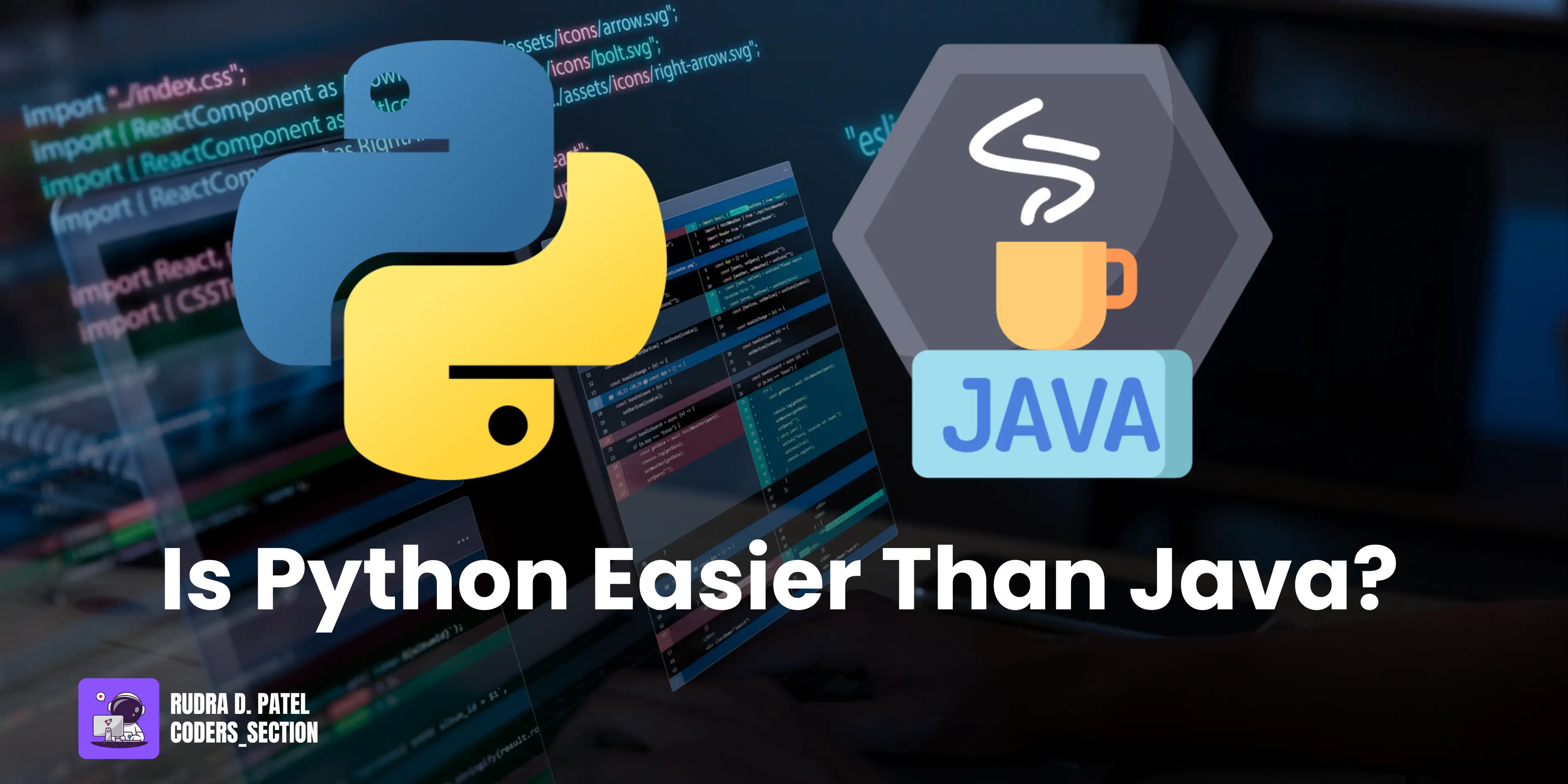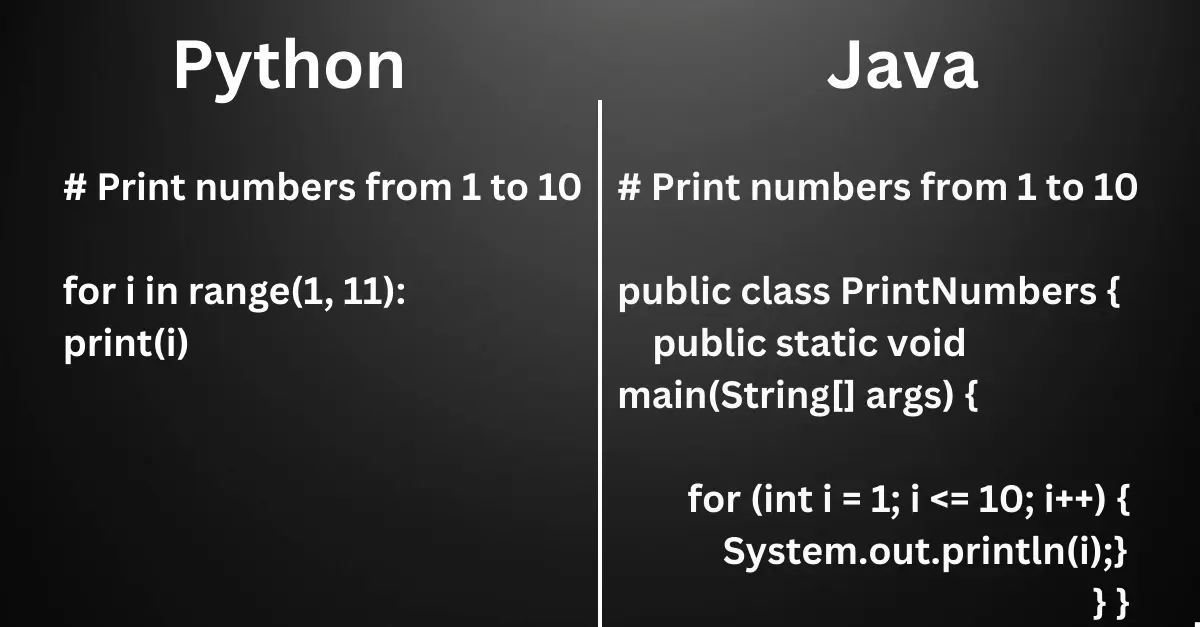Feature Coming Soon!
The newsletter functionality is under development.

Python and Java are two of the most popular programming languages. Both have stood the test of time, powering everything from small applications to large-scale business systems. However, one question that novices and professionals alike frequently ask is:
“Is Python easier than Java?”
The brief response is: Yes, Python is typically simpler to learn and utilize than Java. However, this answer only touches on the basics. To grasp the reasons behind Python's reputation for being easier, as well as the areas where Java remains strong, we should explore the history, syntax, learning curve, applications, performance, and practical use cases of both languages in detail.
Python is a high-level, interpreted programming language renowned for its simplicity, readability, and adaptability. It is sometimes referred to as a "batteries included" language due to its extensive standard library. Python is widely used for data research, artificial intelligence, machine learning, web development, automation, and scripting. In contrast, Java is a high-level, compiled, object-oriented programming language. It adheres to the "Write Once, Run Anywhere" philosophy, thanks to the Java Virtual Machine (JVM). Java is extensively utilized in enterprise applications, Android app development, financial systems, and backend server applications.
Guido van Rossum designed Python in 1991, with a focus on code readability and simplicity. It has grown in prominence over time as a result of the rise of data science and artificial intelligence, as well as its beginner-friendly syntax. Sun Microsystems (later bought by Oracle) introduced Java in 1995. It gained enormous popularity in the early 2000s for enterprise software, Android development, and server-side apps.
In terms of popularity: In recent years, Python has become the most popular programming language according to numerous developer rankings (such as the Stack Overflow surveys). Java continues to perform highly, particularly in enterprise environments and Android app development.
Python syntax is straightforward, clear, and beginner-friendly, much like natural English, making it easier to learn and faster to write. Java grammar is more difficult and verbose, necessitating specific structure and rules, but it promotes strong programming discipline, making it ideal for developing large, scalable, and enterprise-class applications.
For example:
if True:
print("Python is simple!")In Java:
if (true) {
System.out.println("Java requires more syntax!");
}For freashers with no coding experience: Python is frequently easy to understand because of its similarity to English. You can concentrate on understanding logic and problem-solving without worrying about sophisticated syntax. However, Java necessitates thorough understanding of object-oriented programming (OOP) principles such as classes, objects, inheritance, and data types. However, once you've mastered Java, you'll have a solid basis for computer science principles.
Python shows readability and simplicity. The indentation-based approach eliminates the need for curly braces {} and semicolon;.
This makes Python easier to read and maintain, especially for beginners.
👉 Also read - 8 Essential GitHub Repositories for developers
Python is dynamically typed, therefore you do not need to declare variable types. While this makes development faster and easier, it can sometimes result in unanticipated runtime issues. Java is statically typed, thus faults are frequently discovered during compilation, decreasing runtime difficulties but making writing more verbose. Python's flexibility appears to be more user-friendly for beginners. However, for large-scale applications, Java's strict type can effectively prevent many issues.
Ease of use is more than just creating code; it's also about how the code works. Python runs slower because it is interpreted. It values ease of use over sheer performance. Java is faster because it compiles to bytecode and runs on the JVM, which is extremely efficient. If performance is crucial (for example, in high-frequency trading applications, game engines, or large-scale enterprise systems), Java may be a superior option.
Where you want to use the language also determines ease:
Python developers are in high demand for AI, machine learning, data science, and web development positions. Salaries are often quite competitive. Java developers are still highly sought after in enterprise software and Android development. Many large companies rely substantially on Java-based technologies. Python makes it easier to find a job in growing sectors such as AI or data science. If you're looking for enterprise IT or mobile development, Java might be more suited.

Yes. Python's syntax is straightforward and English-like, making it easier for beginners to read, create, and understand code than Java.
If you're new to programming, Python is the greatest place to start because it's simple to learn and has applications in web development, artificial intelligence, data science, and automation. Java is preferable if you intend to develop Android apps or enterprise-level applications.
No. Java typically runs faster since it is a compiled language, whereas Python is interpreted. However, for novices and most tasks, Python's speed is enough.
Both have strong labor markets. Python is in high demand for AI, machine learning, and data science, but Java is commonly used in enterprise software, banking, and Android development.
Absolutely. Java is one of the most widely used programming languages in the world, particularly for Android apps, enterprise solutions, and huge systems.
Found this article insightful? Here are a few ways to continue your learning and help spread awareness:
Get coding tips and resource updates. No spam.
We respect your privacy. Unsubscribe at any time.